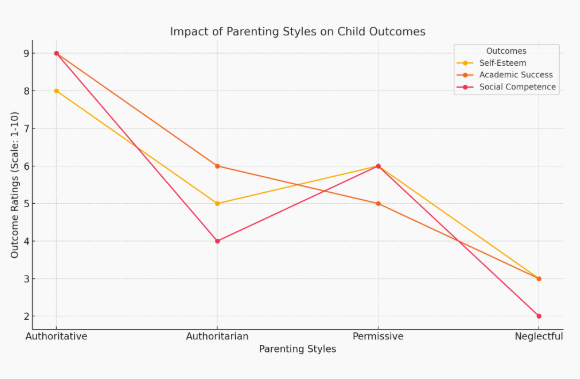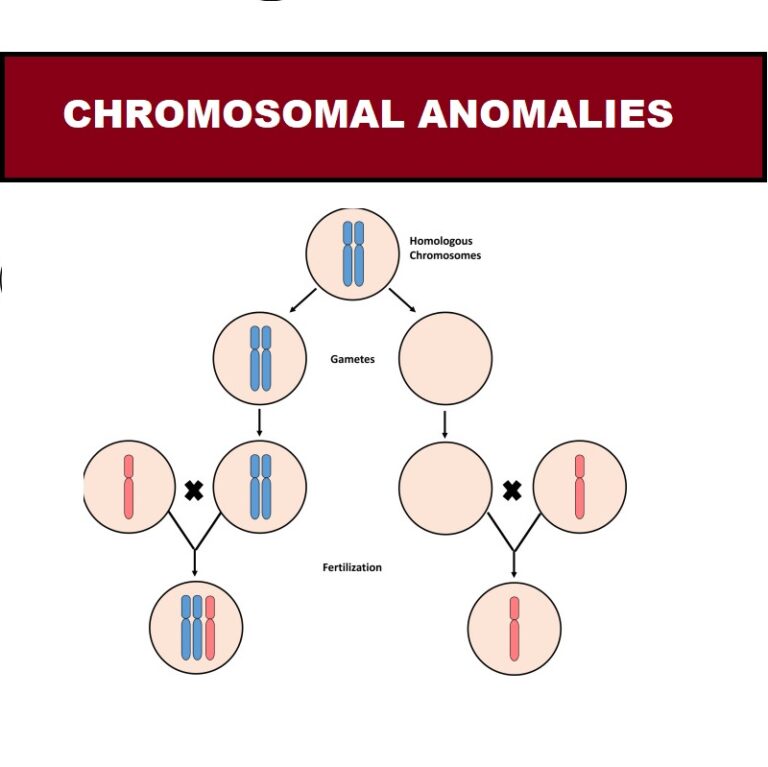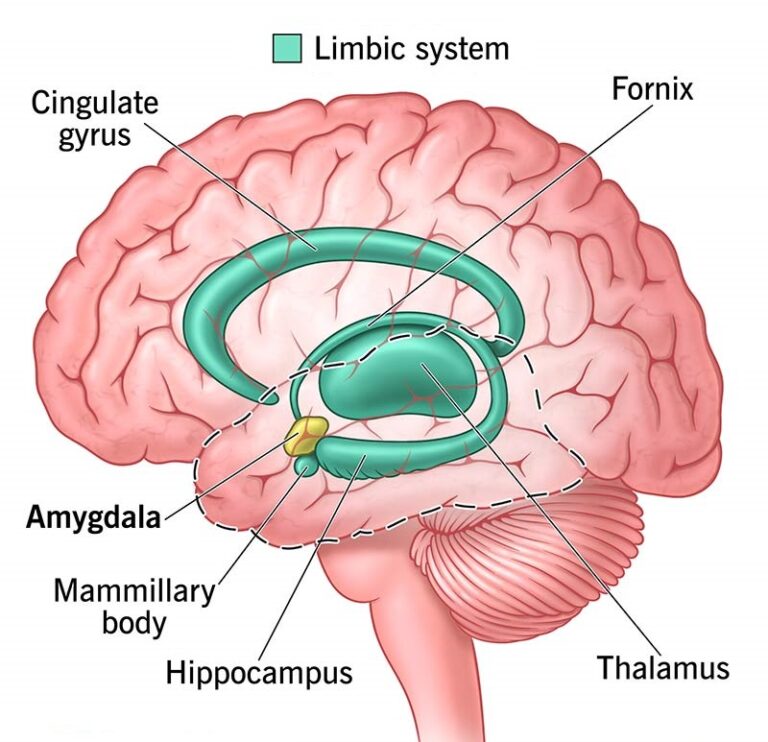
Parenting Styles: Insights, Implications, and Practical Applications
Parenting is a multifaceted process that shapes a child’s emotional, social, and cognitive development. Over decades, psychologists have identified four primary parenting styles: authoritative, authoritarian, permissive, and neglectful. These styles, first outlined by Diana Baumrind and later refined by Maccoby and Martin, profoundly influence children’s behavior, self-esteem, and overall development. This article delves into these parenting styles, their implications in today’s dynamic world, and offers practical advice for parents to navigate the complexities of raising children.
Understanding Parenting Styles
The table below summarizes the key characteristics, outcomes, and examples of each parenting style:
| Parenting Style | Key Characteristics | Child Outcomes | Example |
|---|---|---|---|
| Authoritative | High warmth, high control | High self-esteem, academic success, social competence | Encouraging open dialogue while setting clear rules |
| Authoritarian | Low warmth, high control | Anxiety, low self-esteem, obedient but less happy | Strict rules with little explanation or flexibility |
| Permissive | High warmth, low control | Impulsiveness, poor self-regulation | Few boundaries, prioritizing child’s desires |
| Neglectful | Low warmth, low control | Poor academic performance, emotional insecurity | Minimal involvement in child’s life |

Authoritative Parenting: The Balanced Approach
- Key Characteristics:
- High responsiveness and high expectations.
- Encourages independence while maintaining structure.
- Research Insight: Children raised by authoritative parents are more likely to excel academically, develop emotional intelligence, and demonstrate better social skills (Steinberg, 2001).
- Practical Implications: Authoritative parenting fosters resilience in today’s unpredictable world. Parents can achieve this by setting consistent boundaries while allowing children to express their opinions.
Authoritarian Parenting: Discipline Without Warmth
- Key Characteristics:
- Strict rules, little emotional engagement.
- Focuses on obedience and discipline over nurturing.
- Research Insight: While children from authoritarian households may exhibit discipline, they often suffer from low self-esteem and heightened anxiety (Baumrind, 1991).
- Practical Implications: Overemphasis on control can alienate children. Modern parents can soften authoritarian tendencies by listening actively and incorporating empathy into their interactions.
Permissive Parenting: High Love, Low Limits
- Key Characteristics:
- Indulgent and lenient.
- Avoids confrontation and prioritizes child’s happiness.
- Research Insight: Children raised permissively often struggle with self-regulation and are prone to impulsive behavior (Eisenberg et al., 2005).
- Practical Implications: While affection is crucial, setting limits is equally important. For instance, establishing bedtime routines or homework schedules can instill discipline without compromising warmth.
Neglectful Parenting: The Absence of Engagement
- Key Characteristics:
- Uninvolved, indifferent, and emotionally detached.
- Fails to meet the child’s emotional or physical needs.
- Research Insight: Neglectful parenting is strongly correlated with negative outcomes like poor academic performance and heightened risk-taking behaviors (Pomerantz et al., 2007).
- Practical Implications: Parents facing work-life pressures should prioritize quality over quantity in interactions. Simple practices like shared meals or evening check-ins can counteract the effects of neglect.
Cultural and Modern-Day Insights
Cultural Variations in Parenting Styles
Parenting styles are deeply influenced by cultural norms:
- Collectivist Cultures (e.g., India, Japan):
- Emphasis on obedience, respect for elders, and family harmony.
- Authoritative or authoritarian styles are more prevalent.
- Individualist Cultures (e.g., USA, UK):
- Encourages independence and self-expression.
- Permissive or authoritative styles dominate.
Impact of Technology
The rise of smartphones has introduced a phenomenon known as “digital neglect.”
- Insight: A study by McDaniel and Radesky (2018) highlights how excessive parental screen time disrupts parent-child bonding and reduces responsiveness.
- Practical Tip: Create tech-free zones, such as during meals or bedtime, to foster meaningful interactions.
Hybrid Parenting Styles
Many modern parents adapt their approach based on context, blending elements of different styles. For instance, a parent might adopt an authoritarian approach for academic tasks but switch to permissive for creative pursuits.
Practical Applications for Parents
- Set Technology Boundaries:
- Use apps to monitor screen time.
- Establish device-free family rituals.
- Encourage Open Communication:
- Schedule regular family meetings to discuss challenges and celebrate achievements.
- Practice active listening by paraphrasing your child’s concerns.
- Foster Emotional Intelligence:
- Use emotion wheels or role-play to help children identify and articulate their feelings.
- Adapt and Evolve:
- Stay attuned to your child’s needs and adjust your parenting style accordingly.
Final Words
Parenting is a journey-one filled with challenges, learning, and immense rewards. While no single parenting style guarantees success, understanding the strengths and pitfalls of each can help parents make informed choices. In today’s fast-paced, tech-driven world, the key lies in being present, adaptable, and intentional.
Parenting is not about perfection but connection. By striking the right balance between warmth and guidance, parents can nurture confident, compassionate, and resilient children who thrive in all aspects of life.
References
- Baumrind, D. (1991). The influence of parenting style on adolescent competence and substance use. Journal of Early Adolescence, 11(1), 56-95.
- Eisenberg, N., Fabes, R. A., & Murphy, B. (2005). Parenting practices and children’s emotional regulation: The role of effortful control. Journal of Child Psychology and Psychiatry, 46(2), 173-193.
- McDaniel, B. T., & Radesky, J. S. (2018). Technoference: Parent distraction with technology and associations with child behavior problems. Child Development, 89(1), 100-109.
- Pomerantz, E. M., Qin, L., Wang, Q., & Chen, H. (2007). The role of parenting in children’s motivation and competence: Cross-cultural perspectives. Journal of Child Development, 78(1), 1832-1851.
- Steinberg, L. (2001). We know some things: Parent-adolescent relationships in retrospect and prospect. Journal of Research on Adolescence, 11(1), 1-19.
- Kagitcibasi, C. (2007). Family, self, and human development across cultures: Theory and applications. Lawrence Erlbaum Associates.







